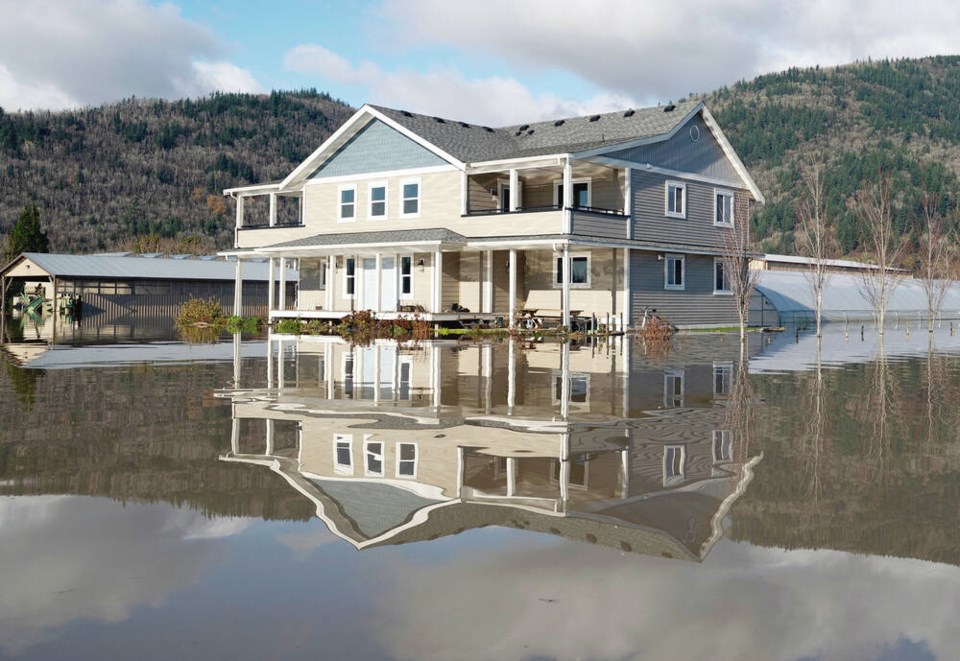Antonio Guterres, the UN Secretary General, has told us “humanity is waging war on nature.”
The problem is that wars have winners and losers. But as the events this year have surely shown us, Mother Nature is more powerful than us, and bats last. We are going to lose this war, which is why Guterres added: “This is suicidal.”
We need to give up the belief that humanity is more powerful than nature, that we can manage and control and defeat nature. Instead, we need to understand that we have to work with and make peace with nature, as Guterres urges us to do. Because Mother Nature has been showing us that “business as usual” is a recipe for disaster, one for which we seem almost entirely unprepared.
We have become the victims of a self-imposed “perfect storm,” which the Merriam-Webster Dictionary defines as “a critical or disastrous situation created by a powerful concurrence of factors.”
Here in B.C., we have experienced the heat dome, disastrous forest fires and now horrendous floods. What drives all these events is climate change, to which B.C. is a significant contributor, combined with poor planning and bad practices that create vulnerable conditions.
What we have heard described as “atmospheric rivers” are better described as vapour storms. In an article in the November edition of Scientific American, Jennifer Francis, a senior scientist at the Woodwell Climate Research Centre, notes that global warming leads to higher levels of water vapour in the air. This fuels “‘vapour storms’ that are unleashing more rain and snow than storms did only a few decades ago.”
Then we have increased our vulnerability to fire and flood and storm over the decades of “business as usual” practices, and compounded that by a failure to adequately take into account the changing climate.
We drained Sumas Lake for farming, then failed to protect and enhance the dikes that should protect it. We built on floodplains: An entire suburb of Vancouver is called Delta — surely that should tell us something — while a Nov. 28 article in the Times Colonist noted that 85 per cent of the community of Pitt Meadows is built on floodplain.
We have clearcut forests as if there were no tomorrow, even though “clearcutting increases the frequency and intensity of forest fires” and also increases the risk of flooding at peak periods and the likelihood of landslides, according to a report prepared this year for the Sierra Club by Dr. Peter Wood, a forester with over 20 years’ experience in the area of forests and climate change in Canada and internationally.
We built the Coquihalla Highway very rapidly, in just 18 months so it would be ready for Expo 86, but are we now paying the penalty for a rushed job? Have we failed to improve and protect the highway in light of predicted climate changes?
None of the events of 2021 should have come as a surprise, although they clearly have. Previous heat events should have warned us of the potential health effects, yet 595 people died in the heat dome and Lytton burned to the ground.
A 2015 report commissioned by the B.C. government found that the dike that protected the Sumas Prairie was “substandard,” “too low” and “need[ed] to be updated” and more generally that “none of the 74 dikes examined in the Lower Mainland fully met the province’s standards,” CBC News reported last week.
On top of that, a report by Ebbwater Consultants earlier this year warned that “the current model for flood risk governance in B.C. is broken,” and yet governments were taken by surprise.
As environmental journalist Andrew Nikiforuk said on CBC’s The Fifth Estate on Nov. 26: “For governments, experience has become making the same mistake over and over again, but with greater confidence.”
What Mother Nature is telling us, fairly clearly, is that we can’t go on with business as usual. We have created climate change, and now we are beginning to see its implications.
We have to change, we have to take all possible measures to slow and then halt human-induced climate change, and we have to learn to live with and adapt to the changes that are inevitably coming. We can’t keep on this way.
Dr. Trevor Hancock is a retired professor and senior scholar at the University of Victoria’s School of Public Health and Social Policy.



